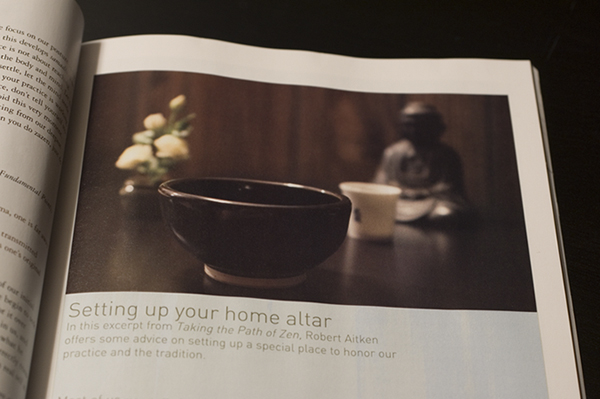The first atheist I ever met — knowingly, anyway — was a boy named Aaron Roberts*. He was two years behind me in high school, and was a Sophomore when I was a Senior. We both sang in the chamber choir, which was a small, tight-knit group of about 16 students. We got to know one another well and to feel comfortable being ourselves, and it was in that context that the rest of us learned about Aaron’s atheism.
I honestly don’t remember it being a problem, or even how it came up in the first place. He never made a fuss about any of the “sacred” songs we sang, and his non-belief was really just kind of a running joke amongst all of us. I don’t remember any of us seriously chastising him for not believing in God — which, looking back on the ultra-conservative cornfield that encompassed our school, is surprising in retrospect. We engaged in a brief high-school-level discussion about proof and reason, and we all (as I remember it) agreed to disagree, with no hard feelings. (Aaron Roberts might remember it differently, I suppose.)
The only time I distinctly remember his atheism coming up, other than the initial discussion, was near the end of the school year. One of the pieces of music we were learning had been photocopied on the reverse side of some letterhead for a Lutheran church, and Aaron was one of the first to notice. He joked about being offended by the photocopies, and we all laughed, and went on singing. The end.
As for myself, I do remember being a little sad for Aaron. After all, I knew God’s Plan. I imagined that Aaron’s life must be so sterile and bleak, not believing in the Hereafter… but Aaron actually seemed quite happy and sure of himself, if still a little introverted and geeky at age 15. (Weren’t we all?)
Before the midpoint of the school year, the chamber choir suffered a tragic loss: Scott, one of our tenors, died in a car accident. For many of us, it was our first experience with the death of a peer, and we didn’t really know how it was appropriate to react. I didn’t, anyway.
Our choir director, Ms. Beall, was sensitive to our feelings, and knew how we would deal best: she led us in “The Lord Bless You And Keep You,” then let us have the class period to cry and talk and deal as we felt best. That was a Monday, as I recall; on Tuesday, we had to get back to work, and the tenors suddenly found themselves underbalanced, with one less member. I think that having to deal with the immediate ramifications of a missing member may have helped us deal with the fact that he was gone for good.
At least half the school went to Scott’s funeral later that week, and I’m pretty sure that the vast majority of the choral program and the sports program turned out to pay their respects. Honestly, I don’t remember if Aaron dealt with Scott’s death any differently than the rest of us — outwardly, at least. If he did, I probably chalked it up to the awkwardness of dealing with strong emotions in front of other people, since I definitely had that problem myself.
Life is so short. So precious. Even more so when you realize that there IS nothing else. This is all we have. In all the eons of time, of all the potential people who could have lived, but didn’t, we get to exist and be present and alive and conscious for a tiny fraction of eternity. Whether that’s 16 short years or 90 short years, we’ve still beaten the odds.
It’s amazing.
* I couldn’t for the life of me remember Aaron Roberts’ name when I sat down to write this, and had to look him up in the choir photo in my high school yearbook from 1994. Funny how people look different in photos than they do in memories, especially from high school.


